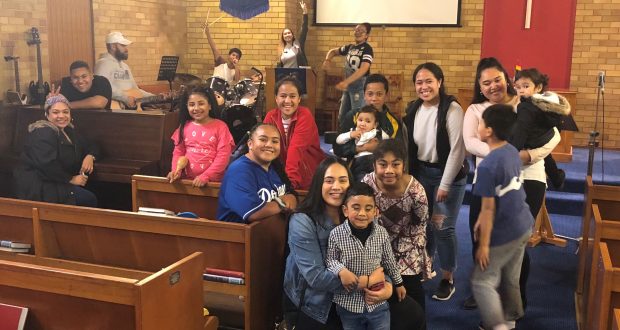Since its formation the Uniting Church has given voice to a desire to be open to and learn from others, writes Uniting Church in Australia President Rev Sharon Hollis.
The Basis of Union committed the church to seek special relationship with churches in Asia and the Pacific and reminded the church that its life is lived within a worldwide fellowship of churches.
In 1985 we declared we were a multicultural church, a statement as much grounded in ambition as practice. In 2012 we committed to live more faithfully in our diversity as One Body Many Members. Reflecting on how it is that we have such a wonderful statement of commitment and practice, but in so many ways fail to live into who we want to be, I was reminded of some helpful wisdom.
I was also reading a book about disability with the subtitle Living into the diversity of Christ’s body in which the author Brian Brock says, “Welcome. Gentleness. Presence. Attentiveness. Commitment. This is all Christians need to know about disability. Simple words that sometimes ask more of us than we want to give.”
As I read these words it struck me that these spiritual practices can also help us live into the diversity of Christ’s body that being a multicultural church promises us—if only we are willing to give ourselves to the journey.
First, a multicultural church requires us to exercise a ministry of welcome. We need an openness to meet each other, to welcome difference, to welcome our shared humanity and faith. The practice of welcome invites us to be curious about why people practise their faith differently to me to wonder about the diversity of ways people understand themselves, their faith their life.
Often in the church those of us from the dominant culture have understood welcome as a form of hospitality where the dominant culture retains the role of host and those from other cultures are guests. This means the dominant culture is able to determine what resources the guest have access to, how they participate, on what terms they join the church. This has so often meant that welcome has come to be expressed narrowly, that resources are withheld and practices remain unchanged, favouring the dominant culture and its ways of doing things. To create a genuine community of welcome we will need to change, to welcome the image of God in each other, to welcome each other as beloved of God and so my sibling in Christ. The burden of change must rest on the dominant culture and the structures of the church.
Secondly it requires gentleness with each other, with our differences, with our mistakes not to excuse our mistakes but to enable us to stay in the relationships and conversations that will change us.
Presence means seeking to be truly present to the other. In order to be present to another person I have be willing to first engage in self-examination, to reflect on what underlies the way I feel about certain people, behaviours, practices, languages, races or countries. It means being willing to feel my own resistance and discomfort that some people evoke in me. I need to be willing to work through why I feel like this, so that I can be present to another without projecting my own presence onto them. This is the work not just of individuals but also of communities and councils of the church.
Then I can be attentive to the many voices and perspectives, to the languages and cadences to the different ways of living as humans and as followers of Christ. When we pay attention to the diversity of voices in our beloved community, we experience different ways to celebrate and grieve, understand a range of ways to parent and raise children, see diverse ways to understand family and community.
Finally for this journey, we need to be committed to staying engaged, to be open to keep learning and growing, to never tiring in our hospitality, to being an advocate and ally for the rich wisdom that can be ours if we are willing to give more than we want and be open to the gifts of the Holy Spirit present in promise of a truly multicultural church and we will find our own lives enriched.
 JourneyOnline
JourneyOnline







